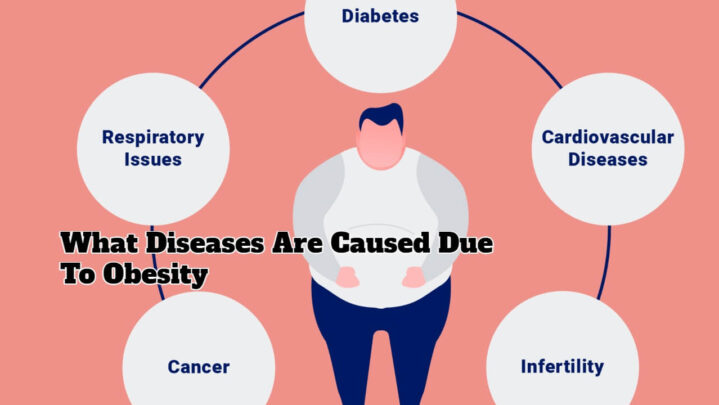Obesity is a medical disorder that arises when a person’s body weight is much greater than what is considered healthy for their height and age. It is a complex problem with substantial effects on a person’s health, including an increased risk for various diseases. Obesity can cause the following conditions:
Type 2 Diabetes: Obesity is a crucial risk factor for type 2 diabetes, a condition in which the body cannot properly use insulin to manage blood sugar levels. Obesity can cause insulin resistance, which makes it difficult for the body to metabolize glucose.
Cardiovascular Disease: Obesity is linked to an increased risk of cardiovascular illness, which includes heart attacks, strokes, and high blood pressure. Excess weight can strain the heart and lead to plaque formation in the arteries, increasing the risk of heart disease.
Sleep Apnea: Obesity can induce sleep apnea, a disease in which a person’s breathing is interrupted during sleep. This can lead to daytime weariness, elevated blood pressure, and increased heart disease risk.
Cancer: Obesity has been related to an expanded risk of different types of cancer, like breast, colon, and prostate cancer.
Joint problems: Excess weight can burden the joints, leading to osteoarthritis and other common issues.
Liver Diseases: Obesity can induce nonalcoholic fatty liver disease, in which fat collects in the liver, causing inflammation and damage.
Reproductive problems: Obesity can induce infertility in both men and women and raise the chance of pregnancy difficulties.
Obesity can have significant health repercussions; thus, it is critical to maintain a healthy weight with a balanced diet and regular exercise to lower the risk of these diseases.





